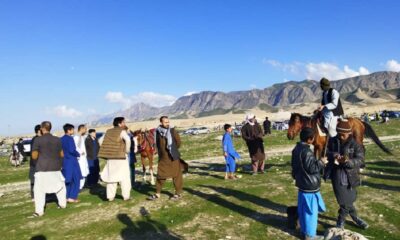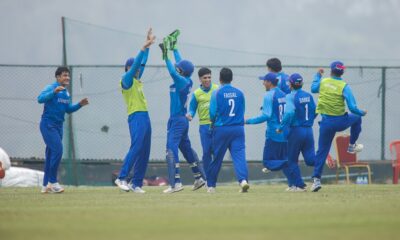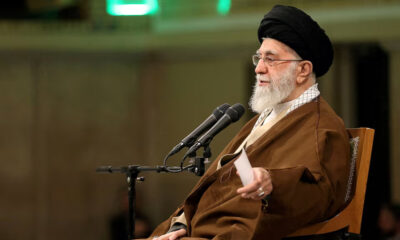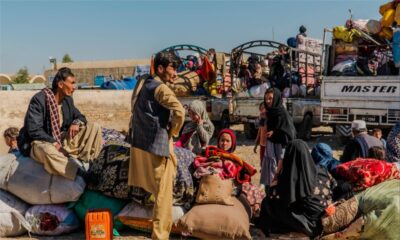Regional
Saudi, Omani envoys hold peace talks with Houthi leaders in Sanaa

Saudi and Omani delegations held talks with Houthi officials in Yemen’s capital Sanaa on Sunday, Houthi-run media said, as Riyadh seeks a permanent ceasefire to end its military involvement in the country’s long-running war, Reuters reported.
The visit indicates progress in the Oman-mediated consultations between Riyadh and Sanaa, which run in parallel to U.N. peace efforts. The peace initiatives have gained momentum after arch-rivals Saudi Arabia and Iran agreed to re-establish ties in a deal brokered by China.
Oman, which shares borders with Yemen, has been trying for years to bridge differences between Yemen’s warring parties, and more broadly between Iran and Saudi Arabia and the United States, read the report.
The envoys, who landed late on Saturday, met with the head of Houthi Supreme Political Council, Mahdi al-Mashat, in Sanaa’s presidential palace, Houthi news agency SABA reported.
President Al-Mashat reiterated the group’s position that it seeks an “honourable peace” and that the Yemeni people aspire to “freedom and independence”, SABA said.
Both sides will negotiate ending hostilities and the lifting of a Saudi-led blockade on Yemeni ports, it added.
Sources have told Reuters that the Saudi-Houthi talks are focused on a full reopening of Houthi-controlled ports and the Sanaa airport, payment of wages for public servants, rebuilding efforts and a timeline for foreign forces to exit the country.
Yemen’s war is seen as one of several proxy battles between Iran and Saudi Arabia. The Houthis, aligned with Iran, ousted a Saudi-backed government from Sanaa in late 2014, and have de facto control of north Yemen, saying they are rising up against a corrupt system and foreign aggression.
They have been fighting against a Saudi-led military alliance since 2015 in a conflict that has killed tens of thousands and left 80% of Yemen’s population dependent on humanitarian aid, read the report.
A Houthi official said on Saturday the group had received 13 detainees released by Saudi Arabia in exchange for a Saudi detainee freed earlier, ahead of a wider prisoner exchange agreed by the warring sides.
At talks in Switzerland last month attended by the United Nations and the International Committee of the Red Cross, the Yemeni government and the Houthis agreed to free 887 detainees. The 13 prisoners are part of that agreement, Houthi official Abdul Qader al-Mortada said.
The Saudi government media office did not respond to Reuters requests for comment on the prisoner exchange and the delegation visiting Sanaa.
Regional
Iran wants indirect talks with US, warns regional countries over strikes against it
Trump has said he would prefer a deal over Iran’s nuclear programme to a military confrontation and he said on March 7 he had written to Khamenei to suggest talks.
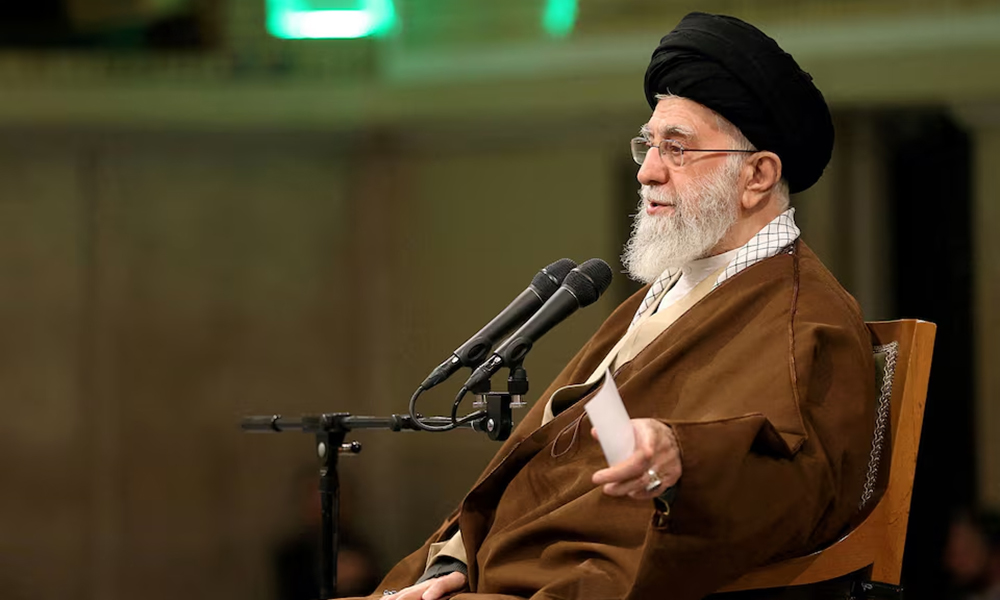
Iran is pushing back against U.S. demands that it directly negotiate over its nuclear programme or be bombed, warning neighbours that host U.S. bases that they could be in the firing line if involved, a senior Iranian official said.
Although Iran has rejected U.S. President Donald Trump’s demand for direct talks, it wants to continue indirect negotiations through Oman, a longtime channel for messages between the rival states, said the official, who spoke to Reuters on condition of anonymity.
“Indirect talks offer a chance to evaluate Washington’s seriousness about a political solution with Iran,” said the official.
Although that path could be “rocky”, such talks could begin soon if U.S. messaging supported it, the official said.
Iran has issued notices to Iraq, Kuwait, the United Arab Emirates, Qatar, Turkey and Bahrain that any support for a U.S. attack on Iran, including the use of their air space or territory by U.S. military during an attack, would be considered an act of hostility, the official said.
Such an act “will have severe consequences for them”, the official said, adding that Supreme Leader Ayatollah Ali Khamenei had placed Iran’s armed forces on high alert.
Warnings by Trump of military action against Iran have jangled already tense nerves across the region after open warfare in Gaza and Lebanon, military strikes on Yemen, a change of leadership in Syria and Israeli-Iranian exchanges of fire.
Worries of a wider regional conflagration have unsettled states around the Gulf, a body of water bordered on one side by Iran and on the other by U.S.-allied Arab monarchies that carries a significant proportion of global oil supplies.
Spokespeople for the governments of Iraq, Kuwait, the UAE, Qatar and Bahrain did not immediately respond to requests for comment. Turkey’s Foreign Ministry said it was not aware of a warning but that such messages could be conveyed by other channels.
On Wednesday, Iranian state media reported that Kuwait had reassured Iran that it would not accept any aggressive action being directed at other countries from its soil.
Iran’s ally Russia said on Thursday that U.S. threats of military strikes against the Islamic Republic were unacceptable and on Friday called for restraint.
Iran is trying to gain more support from Russia, but is sceptical about Moscow’s commitment to its ally, said a second Iranian official. This “depends on the dynamics” of the relationship between Trump and Russian President Vladimir Putin, the official said.
Trump has said he would prefer a deal over Iran’s nuclear programme to a military confrontation and he said on March 7 he had written to Khamenei to suggest talks.
The first Iranian official said a first round of indirect talks could involve Omani mediators shuttling between the Iranian and U.S. delegations. Khamenei has authorised Foreign Minister Abbas Araqchi or his deputy, Majid Takht-e Ravanchi, to attend any talks in Muscat.
Oman’s government spokesperson did not immediately respond to a request for comment.
However, the official believed there was a window of around two months to agree a deal, citing worries that Iran’s long-time foe Israel might launch its own attack if talks took longer, and that it could trigger a so-called “snap back” of all international sanctions on Iran to prevent the country from acquiring a nuclear weapon.
Iran has long denied wanting to develop a nuclear weapon. However, it is “dramatically” accelerating enrichment of uranium to up to 60% purity, close to the roughly 90% weapons-grade level, the U.N. nuclear watchdog has warned.
Western states say there is no need to enrich uranium to such a high level under any civilian program and that no other country has done so without producing nuclear bombs.
While Iran has said it will consider talks with the U.S. if the aim was to address concerns over its programme, it has rejected holding any direct negotiations when the U.S. is making threats and has said its missile programme would be off limits.
A senior Iranian military commander, the Islamic Revolutionary Guards Corps’ Amirali Hajizadeh, had implied on Monday that U.S. bases in the region could be targeted in any conflict.
In 2020, Iran targeted U.S. bases in Iraq after the assassination of Qassem Soleimani, the head of the IRGC’s Quds Force, in a U.S. missile strike in Baghdad.
Regional
Rains add to challenge for Myanmar quake relief, toll at 3,471
Aid agencies have warned the unseasonable rains and extreme heat could cause outbreaks of disease, including cholera, among quake survivors
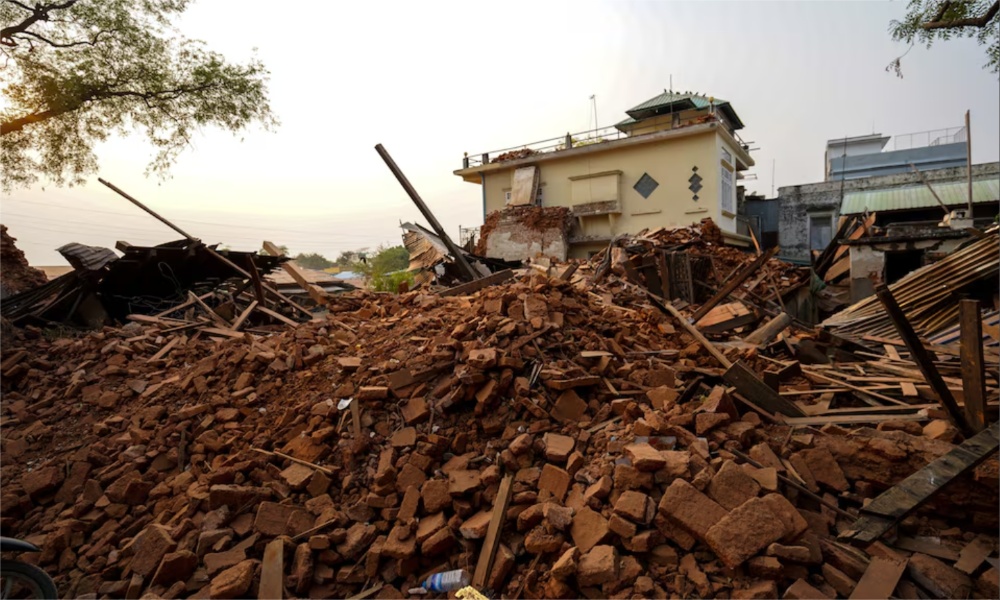
Rains fell on parts of earthquake-hit Myanmar over the weekend, which aid agencies said could complicate relief efforts and raise the risk of disease as the United Nations aid chief said more tents were needed to shelter those left homeless.
The death toll from the powerful quake that hit on March 28 rose to 3,471, state media reported, with 4,671 people injured and another 214 still missing.
Aid agencies have warned the combination of the unseasonable rains and extreme heat could cause outbreaks of disease, including cholera, among quake survivors who are camping in the open, Reuters reported.
“Families sleeping outside the ruins of their homes while bodies of loved ones are pulled from rubble. Real fear of more quakes,” visiting U.N. aid chief Tom Fletcher said in a post on X.
“We need to get tents and hope to survivors as they rebuild their shattered lives,” he said, adding strong, coordinated action was the key to saving as many lives as possible.
Myanmar’s neighbours, such as China, India and Southeast Asian nations, are among those that dispatched relief supplies and rescuers over the past week to aid the recovery effort in quake-hit areas that are home to about 28 million people.
The United States, which was until recently the world’s top humanitarian donor, has pledged at least $9 million to Myanmar to support earthquake-affected communities but current and former U.S. officials say the dismantling of its foreign aid programme has affected its response.
Three U.S. Agency for International Development workers who had travelled to Myanmar after the quake were told they were being let go, Marcia Wong, a former senior USAID official, told Reuters.
“This team is working incredibly hard, focused on getting humanitarian aid to those in need. To get news of your imminent termination – how can that not be demoralising?” Wong said.
In neighbouring Thailand, authorities said that the country’s death toll from the quake had risen to 24. Of those, 17 died at the site of a skyscraper in the capital, Bangkok, that collapsed while under construction. A further 77 were still missing there.
Myanmar’s military has struggled to run the country since overthrowing the government of Nobel laureate Aung San Suu Kyi in 2021, leaving the economy and basic services, including healthcare, in tatters, a situation exacerbated by the quake.
The civil war that followed has displaced more than 3 million people, with widespread food insecurity and more than a third of the population in need of humanitarian assistance, the U.N. says.
While a ceasefire was declared on Wednesday, the U.N. Office of the High Commissioner for Human Rights said on Friday the junta was restricting aid in areas that did not back its rule. It also said it was investigating reported attacks by the junta against opponents, including after the ceasefire.
Regional
Israeli troops expand ‘security zone’ in northern Gaza

Israeli troops were expanding their control of ground in northern Gaza, the military said on Friday, days after the government announced plans to seize large areas with an operation in the south.
Soldiers carrying out the operation in Shejaia, a suburb east of Gaza City in the north, were letting civilians out via organised routes, as troops moved in to expand the area defined by Israel as a security zone in Gaza, a statement said, Reuters reported.
Images circulating on social media showed an Israeli tank on Al Muntar hill in Shejaia, in a position that gave it clear sight over Gaza City and beyond to the shoreline. Shelling on the eastern side of Gaza was non-stop, a local health official said in a text message.
Where Israeli forces moved in, hundreds of residents had already left a day earlier, carrying belongings or loading them on to vans or donkey carts, after the military issued the latest in a series of evacuation warnings that now cover around a third of the Gaza Strip, according to the United Nations.
Israel resumed its operation in Gaza with a heavy series of air strikes on March 18 and sent troops back in after a two-month pause during which 38 hostages were returned in exchange for hundreds of Palestinian prisoners and detainees.
Efforts at restarting negotiations, brokered by Egypt and Qatar, have stalled. “There are currently no contacts,” a Palestinian official close to the mediation effort told Reuters.
Over the past two weeks, more than 280,000 people have been displaced in Gaza, according to U.N. humanitarian agency OCHA, adding to misery for families already repeatedly displaced over the past 18 months.
“I swear to God that I am staying in the street, there is no shelter here,” said 40-year-old Hemam Al-Rifi, who said members of his family were killed when the Gaza City school complex they were sheltering in was hit by a deadly strike on Thursday.
“My house was destroyed at first, and I stayed in a tent in a school, not a classroom, and now I don’t know where to go.”
In Gaza City, local people said Israeli strikes had hit a water desalination plant that was vital in providing clean drinking water. Aid supplies have been cut off for weeks.
On the southern edge of Gaza, Israeli troops have been consolidating around the ruins of the city of Rafah and the U.N. says 65% of the enclave is now within “no go” areas, under active displacement orders, or both.
Ministers have said the operation will continue until 59 hostages still held in Gaza are returned. Hamas says it will free them only under a deal that brings a permanent end to the war. On Friday, a spokesperson for the group’s armed wing said half of the hostages were being held in areas where people had been told to evacuate.
“If the enemy is concerned about the lives of these hostages, it must immediately negotiate their evacuation or release,” Abo Ubaida said in a message on Telegram.
HUNDREDS KILLED
Israel has not fully explained its long-term aim for the areas it is now seizing as a security zone, extending an existing buffer area along the edge of the enclave hundreds of metres into the Gaza Strip.
Gaza residents say they believe the aim is to permanently depopulate swathes of land, including some of Gaza’s last farmland and water infrastructure.
Officials say the operations are in line with plans of U.S. President Donald Trump, who said in February he wanted to move the Gaza population into neighbouring countries and turn the enclave into a waterfront resort under U.S. control. Israel says it would encourage Palestinians who wish to leave voluntarily.On Friday, Gaza health authorities said at least 35 Palestinians were killed, most in southern areas of Gaza. Among the dead were 19 members of one family killed when a strike demolished the three-storey building where they were staying.
The military said its forces killed Mohammed Awad, a senior commander in the militant group Palestinian Mujahideen, who it said was involved in the abduction of hostages including the Bibas family during the attack on Israel on Oct 7, 2023, and was most likely involved in their killing.
Israel accuses Hamas of hiding fighters in civilian buildings and says it takes precaution to limit casualties, but hundreds of Palestinians have been killed since the operation resumed, according to local health authorities. More than 250 of the dead were armed militants, the military says.
As a ceasefire agreement that halted fighting in January has collapsed, the risk of a wider return to war has increased, with Israel striking targets in both Lebanon and Syria over recent days. On Friday, it said an air strike in the Lebanese city of Sidon killed a senior Hamas operative.
Israeli troops have also been engaged in an extended operation in the occupied West Bank, where two Palestinians were killed on Friday.
The war began when Hamas fighters stormed into Israeli communities on October 7, 2023, killing 1,200 people and capturing more than 250 hostages, by Israeli tallies. Since then, Israel has reduced much of Gaza to ruins and killed more than 50,000 Palestinians, according to the enclave’s health authorities.
-

 Latest News4 days ago
Latest News4 days agoMinistry of Economy calls on US to release Afghanistan’s frozen funds
-

 Latest News4 days ago
Latest News4 days agoPakistan ‘extends’ deadline for a week for Afghans to leave the country
-

 World5 days ago
World5 days agoAs Iran tensions build, US military moves warplanes to reinforce Middle East
-

 Sport4 days ago
Sport4 days agoIPL 2025: Batters in race for prestigious Orange Cap
-
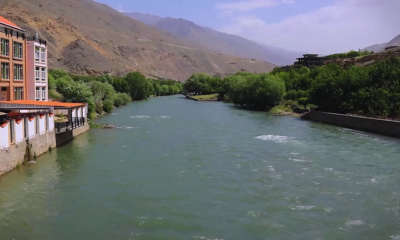
 Latest News4 days ago
Latest News4 days agoPanjshir to Kabul water conduit project ‘waiting for budget approval’
-
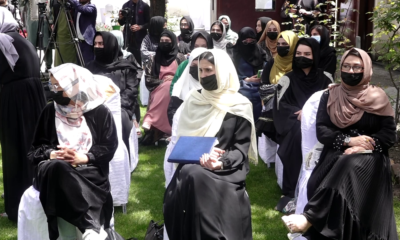
 Latest News4 days ago
Latest News4 days agoFemale journalists complain about lack of access to accurate and timely information
-

 Business3 days ago
Business3 days agoExports to Pakistan grind to a halt over faulty scanner at Torkham
-

 Regional3 days ago
Regional3 days agoMilitary confrontation seems inevitable if no new Iran nuclear deal, France says




